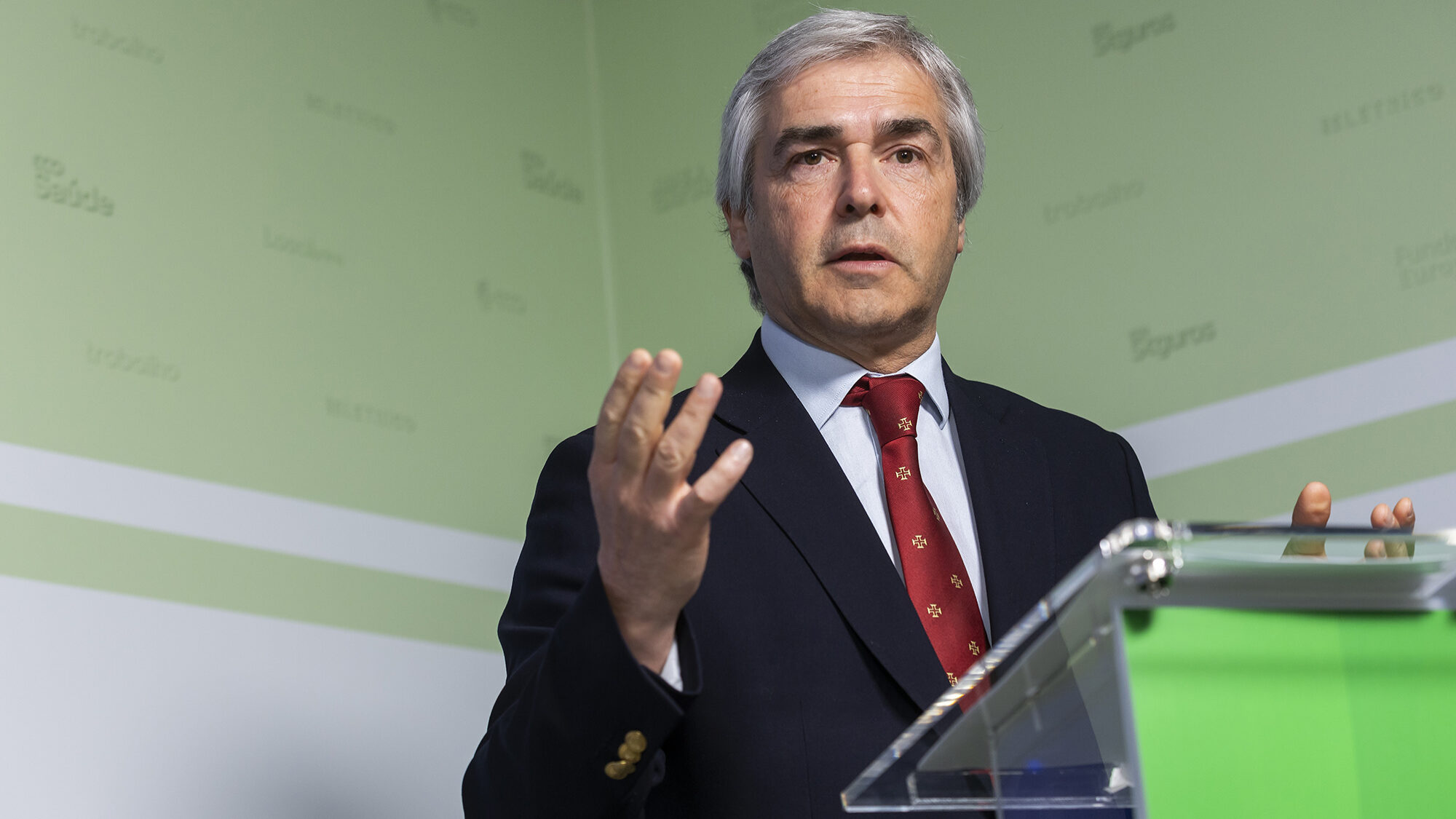Governor of the Bank of Portugal wants to build a Portuguese-speaking financial front
Amid calls for greater cooperation and the defence of central banks' monetary independence, Santos Pereira wants to strengthen the weight of Portuguese-speaking economies in the global chess game.
The new governor of the Bank of Portugal, Álvaro Santos Pereira, used the 35th Lisbon Meeting between the central banks of Portuguese-speaking countries, held on Monday at the Money Museum, to call for unity among Portuguese-speaking countries in a context of growing global economic instability.
Speaking to his counterparts from the Portuguese-speaking world, Álvaro Santos Pereira argued that only closer cooperation between the central banks of the nine countries will enable them to face the challenges of “a world experiencing times of considerable uncertainty”.
“The nearly 300 million people who share the same language represent a linguistic and cultural heritage of enormous economic value that we must promote and value”, stressed the governor of the Bank of Portugal.
To this end, Álvaro Santos Pereira proposed that meetings between governors should be held several times a year, either in Washington during the meetings of the International Monetary Fund (IMF) and the World Bank, or on a rotating basis in the various countries, as is the case with the G7 and G20.
At the heart of the Bank of Portugal Governor’s speech was his uncompromising defence of the autonomy of monetary institutions, noting that “independence and credibility are central pillars of economic stability”, particularly at a time when, in his words, there are growing political questions about independent institutions, including some central banks.
This defence of independence is particularly important in a turbulent international context. Álvaro Santos Pereira warned that “the world is experiencing a period of significant uncertainty surrounding trade and international policies” in the context of the configuration of international financial relations, a clear reference to the geopolitical and trade tensions that characterise the current situation.
One of the most precarious points in the global economic picture is the public debt situation in many countries, particularly Portuguese-speaking countries. The governor of the Bank of Portugal warned that the global economy has “levels of debt never [seen] in peacetime”, stressing that it is “absolutely essential to work to ensure that debts remain on a downward trend”.
The situation is particularly dramatic in sub-Saharan Africa (which includes Angola and Mozambique), with Álvaro Santos Pereira warning that the debt burdens of some Portuguese-speaking African countries are at historically high levels and that fiscal space has been shrinking faster than in other regions.
The diagnosis, which is reflected in a study published on Monday by the Bank of Portugal and cited by Santos Pereira, points out that “public debt burdens will absorb, on average, 14% of budget revenues in 2024, double the figure recorded a decade ago, with prospects for further deterioration in 2025”. In addition, it estimates that the financing flows of many of these countries will be virtually limited to covering debt servicing in the coming years, which will force many countries into fiscal consolidation processes precisely when they face urgent investment needs.
Technical cooperation as a response to challenges
To address many of the challenges facing the PALOP countries, Álvaro Santos Pereira launched an ambitious programme of technical cooperation between Portuguese-speaking central banks for discussion, which involves holding more regular meetings at the highest technical level. “To discuss and familiarise ourselves with experiences on issues such as price stability, promoting financial literacy, reducing the informality of our economies, combating fraud and sharing experiences in banking supervision”, he explained.
The strategy also involves substantially increasing the scope of bilateral mobility programmes between employees of Portuguese-speaking central banks and holding regular joint virtual seminars between teams to discuss economic forecasts and share studies.
“It is essential that we all learn to strengthen international relations and that we work in an increasingly coordinated and clearer manner”, said Álvaro Santos Pereira, arguing that Portuguese-speaking countries can and should have greater weight in international financial chess, provided that their central banks work in a coordinated manner.
The 35th Lisbon Meeting, which brought together representatives from the central banks of Brazil, Angola, Cape Verde, Guinea-Bissau, Mozambique, São Tomé and Príncipe, East Timor and Macau, as well as Portugal, took place in a particularly significant context. It was the first major international event led by Santos Pereira since he took over the governance of the Bank of Portugal a week ago, succeeding Mário Centeno.




